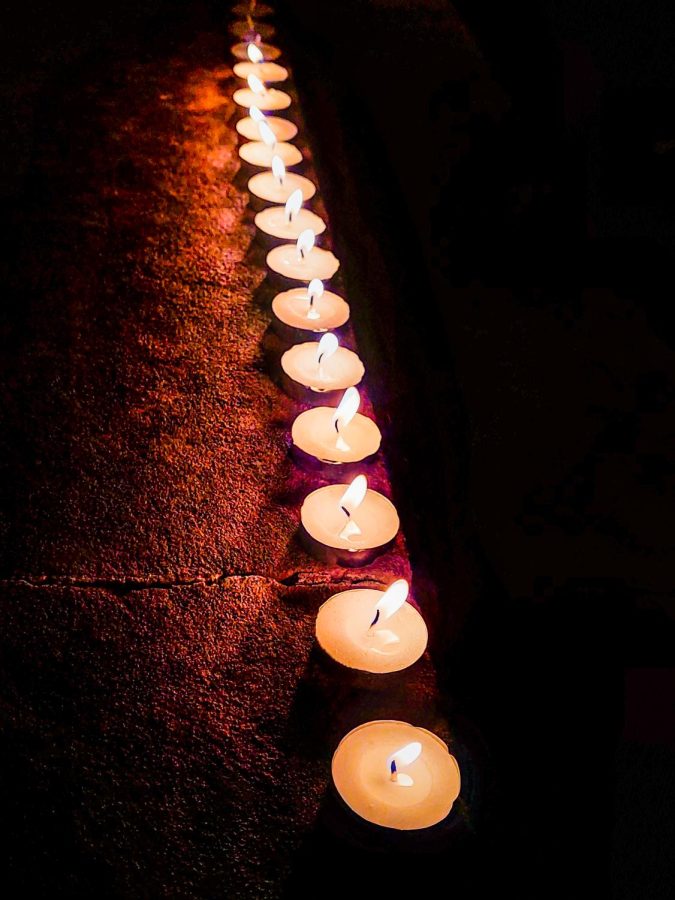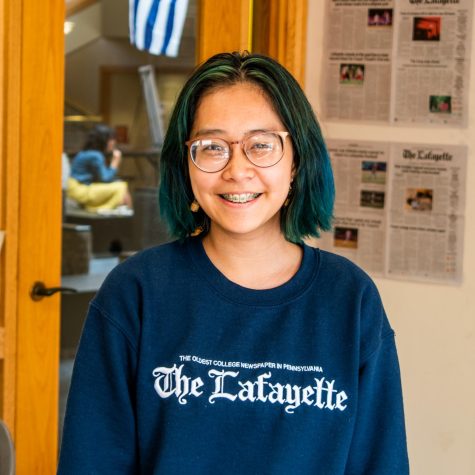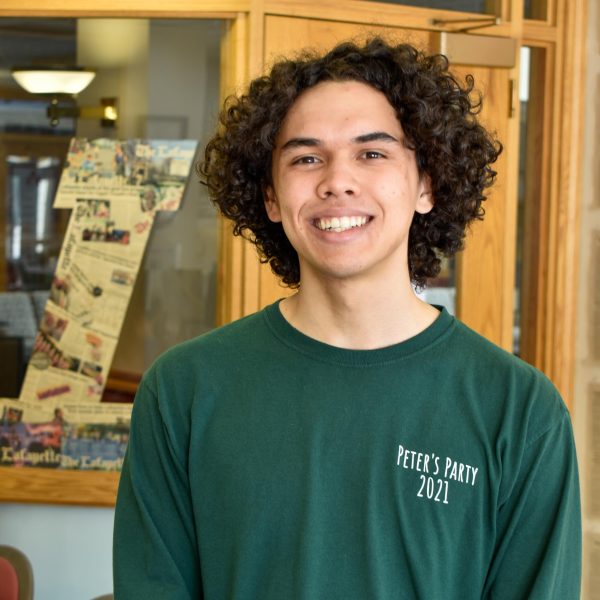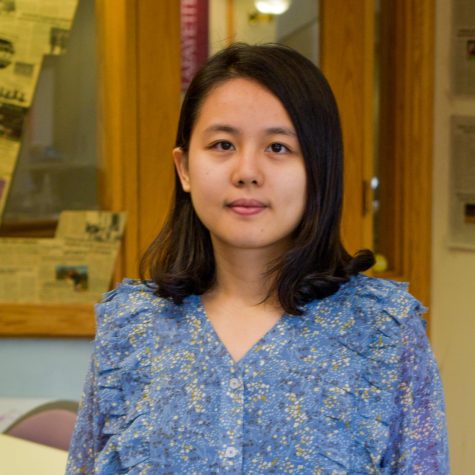This past Wednesday, members of the Lafayette community gathered to mourn, celebrate and remember the victims of China’s “zero Covid” policy.
On Nov. 24, 10 people in Ürümqi, Xinjiang lost their lives in a fire due to emergency services being prevented from responding; barricades put in place for China’s strict COVID-19 lockdown measures blocked emergency vehicles. This incident – which was not the first time that civilian deaths resulted from China’s “zero Covid” policy – sparked widespread protests throughout China.
“We’ve never seen such protests, and we know that it has rarely happened since 1989,” Angela Shi ‘23, one of the vigil’s organizers, said.
1989 was the year of the Tianamen Square protests in China.
“For me, myself, I was really touched, but also angered, grieved, mix of all kinds of feelings,” Angela Shi ‘23, one of the vigil’s organizers, said of her feelings once hearing about the fire. “But one thing that really struck me was that I couldn’t be there. I couldn’t be present to fight or to mourn or to take actions that would have direct influence on what’s going on in China because I’m here,” Shi said.
This vigil educated the community about these instances, as well as provided an opportunity to grieve the lives lost.
“If we can’t go on the street in China, then we can let more people know about what’s going on,” Shi said. “And we can connect as a community who is kind of abroad and kind of in exile.”
According to the vigil’s organizers, creating such a space at Lafayette is crucial, especially for the college’s Chinese students.
“I think a lot of Chinese students are going to be very depressed, or their mental health being influenced by what’s going on in China, despite their being here at Lafayette,” organizer Lucy Cai ’23 said.
The vigil began with an educational presentation by Shi about the fire in Ürümqi, as well as other tragedies that have taken place because of China’s lockdown measures. Co-organizer of the event Michael Sun ’23 followed by detailing other outcomes of China’s “zero Covid” policy, including mandatory mass PCR testing, a QR code tracking system and difficulty seeking medical attention for non-Covid related illnesses.
“We have to educate people to let them know what’s going on before we can start protesting,” Shi said.
However, this choice to make the event educational rather than political was also to protect the vigil’s participants.
“To ensure our safety and to ensure all the participants’ safety, we decided not to raise it to a protest level; we would educate them about what’s going on,” Sun said.
China has already arrested protesters in the country. Cai said that even for students at Lafayette who are Chinese citizens, attending or organizing such events can be dangerous. Accordingly, the organizers provided masks for those who gathered at the event to hide their identities; some, but not all present, chose to wear them.
“For Chinese activists, I think this is a very tricky part. So for our events, we want to ensure the safety of everyone,” Cai said.
After the presentations, the 30 or so attendees participated in a candle lighting ceremony where they were encouraged to light one or multiple candles in honor of victims who have died due to China’s “zero Covid” policy. Then, everyone joined in a moment of silence to further memorialize the victims.
After the moment of silence, volunteers from the Lafayette community recited three poems by transnational Chinese feminists in both Mandarin and English.
“Out of my sight they are suffering / And I, am going to pick up the pen / And never drop it,” reads the ending lines of the first recited poem, “Untitled.”
The event concluded with a group sing-along of the Chinese children’s song “Xiǎo Bái Chuán,” which translates to “Little White Boat.” The song was originally written by North Korean musician Yin Kerong during the Japanese occupation of Korea. The lullaby is widespread in East Asia as a melody of hope and yearning.
The three organizers were pleased by the high turnout at the vigil.
“Today, we got a lot of people together, and I think that’s quite meaningful,” Shi said.
“What we’re doing right here might seem small, but it actually just keeps pushing the momentum,” Sun said.


























































































































